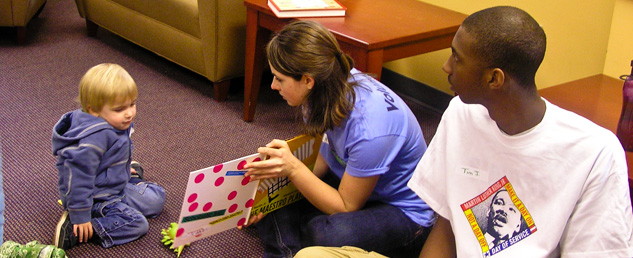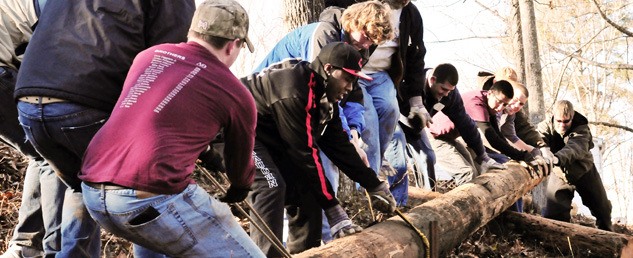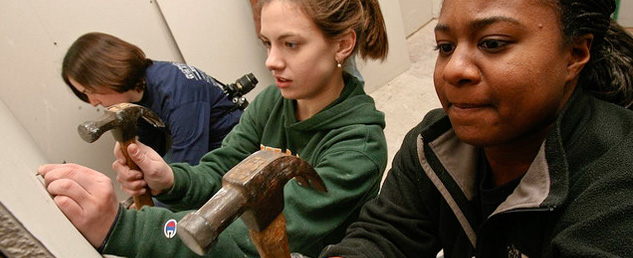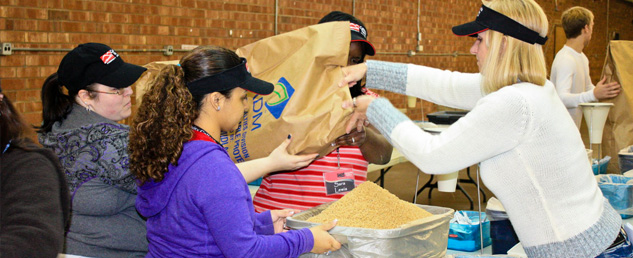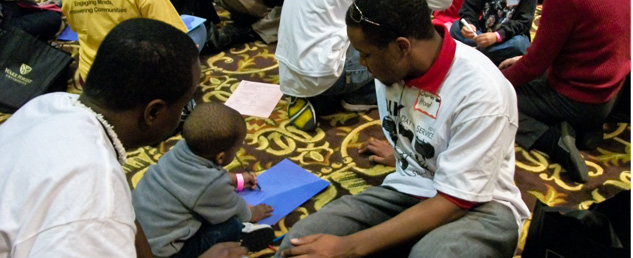Move-out and graduation are hectic times as students scramble to finish exams, clean out dorm rooms, and pack for home, travel, or summer jobs. On some campuses, this haste does not make waste, because students and staff organize programs to collect and donate cast-off items.
Appalachian State University’s massive “Don’t Throw It Away“ campaign began in 2001 to reduce waste produced by students during move out week and to raise awareness about sustainability. Starting on reading day, teams of student volunteers organize a week of collection events, visiting collection points in lobbies of campus residence halls and manning drop-off points across campus. This year, more than 230 volunteers gave more than 1000 hours to the effort, which ran from May 2 – May 9. The 2015 haul is still being tallied, but in each of the past two years, Don’t Throw It Away has yielded more than 70 tons of donated material.
What happens to all that stuff? At Appalachian State, the items are sorted and stored all summer in the university’s on-campus nightclub, Legends.
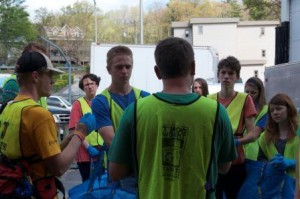
Over 230 volunteers collected donated items for Appalachian State’s “Don’t Throw it Away” campaign this year.
“This is such an amazing event,” says Thomas Evans, Assistant Director of Community Service, who oversees the project at the ACT Office. The ACT Office works with University Housing, the Office of Sustainability, and other units to pull off the annual event. “You can really see the impact as the space in Legends starts to fill up!”
While students return in the fall, the items are sold at the “Big Sale.” Since 2001, the sale has generated more than $100,000 in funding to support the university’s local non-profit partners. Since 2007, these funds are granted to selected partners to support energy efficiency upgrades, further highlighting sustainability issues.
According to Evans, community agencies value the chance to invest in energy efficiency, which frees up funds for human services that would otherwise go to overhead. For example, some of the proceeds from the upcoming Big Sale will support the local Habitat Restore. The non-profit will use Big Sale funds to install efficient lighting in its three local warehouses. Evans says the Restore estimates these improvements could save more than $700/month in energy costs.
At UNC-Chapel Hill, the “Tarheel Treasure” event lets students donate re-usable and recyclable items. According to UNC officials cited in a recent news report, the program has diverted more than 200 tons of material from landfills since it began in 2009.
Since 2009, Elon University has run its “Don’t Trash It“ program during move-out week. In residence halls and at Goodwill and Habitat for Humanity collection trucks parked on campus, students can donate home goods, clothing, electronics, and non-perishable food. In 2014, Don’t Trash It! efforts resulted in 10,060 pounds of goods to Goodwill, 6 truckloads of furniture to Habitat for Humanity, 1,486 lbs. of food to Allied Churches and about 430 lbs. of bedding to First Presbyterian Church.
UNC Greensboro sells the items collected from students during move-out week at its annual “Cram and Scram Yard Sale.” A recent news article explains how the program is intended to divert usable items and materials that would otherwise go straight to the landfill. Because every item is sold for 50 cents, crowds line up early to wait for the Elliot University Center doors to open. Any unsold items are donated to local non-profits.
For those seeking tips on organizing a similar move-out donation drive, check out “Give and Go! Planning a College Move-Out Donation Drive Technical Guide” released by Keep America Beautiful in February 2015. UNC Chapel-Hill Housing Facilities Manager and Tarheel Treasure program director Deborah Bousquet contributed to the document.
UPDATE on 6/15/15: More news of campus donation efforts. Goodwill of Northwest North Carolina received nearly 30 tons of donated items from 12 colleges, universities, and boarding schools that took part in the “Ditch ‘n Dash” program! Participating schools included four campuses in our network: Wake Forest University, Western Carolina University, UNC Asheville, and Lenoir-Rhyne University. Wake Forest University alone collected just over 10 tons of donations. Read the Goodwill NWNC press release.

